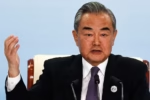In the Czech parliamentary elections, populist leader and former prime minister Andrej Babiš and his party ANO are in a commanding lead after the first results were released.
With about 20% of ballots counted, ANO is projected to secure 93 seats in the 200-member lower house of parliament, based on 39.17% of the vote.
The main rival, the center-right coalition Together (SPOLU) led by current Prime Minister Petr Fiala, stands at 19.4% and 43 seats. Fiala’s coalition partner Mayors and Independents (STAN) has so far gained 10.64% and 22 seats.
Possible Coalition Partners
Babiš’s potential partners include the far-right Freedom and Direct Democracy (SPD) party with 8.40% (17 seats), and the radical conservative Motorists for Themselves party with 7.46% (13 seats).
Meanwhile, the Pirate Party, which could align with the current ruling coalition, won 7.13% and 13 seats. The far-left pro-Russian Enough! movement, led by unreformed communists, failed to cross the 5% threshold.
AI Models Predict Adjustments
An AI-based forecast model used by Czech media outlet Seznam Zpravy predicts that final results could lower ANO’s lead to around 35%, as votes from urban strongholds of centrist and moderate right-wing parties are counted last.
According to this projection:
- SPOLU could finish at 22.9%
- STAN at 11.7%
- Pirates at 8.2%
- SPD at 8.1%
- Motorists at 7%
The model does not expect the extreme left to enter parliament. Unofficial results are expected later tonight.
European Concerns
The elections are being closely followed by both the European Union and Russia. Brussels fears a possible shift in Czech policy toward Ukraine, particularly if Babiš relies on extremist partners such as the SPD, whose rhetoric aligns more with Hungarian PM Viktor Orbán or Slovakia’s Robert Fico.
However, analysts caution that Babiš is above all a pragmatic businessman, focused on his company Agrofert, which operates across 16 EU countries and relies heavily on EU subsidies and public procurement.
Before the election, Babiš stated he would not follow Orbán or Fico in EU disputes, but instead seek alliances with pro-European leaders, particularly Poland’s Prime Minister Donald Tusk.







